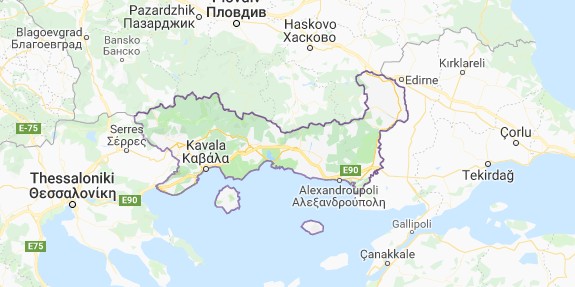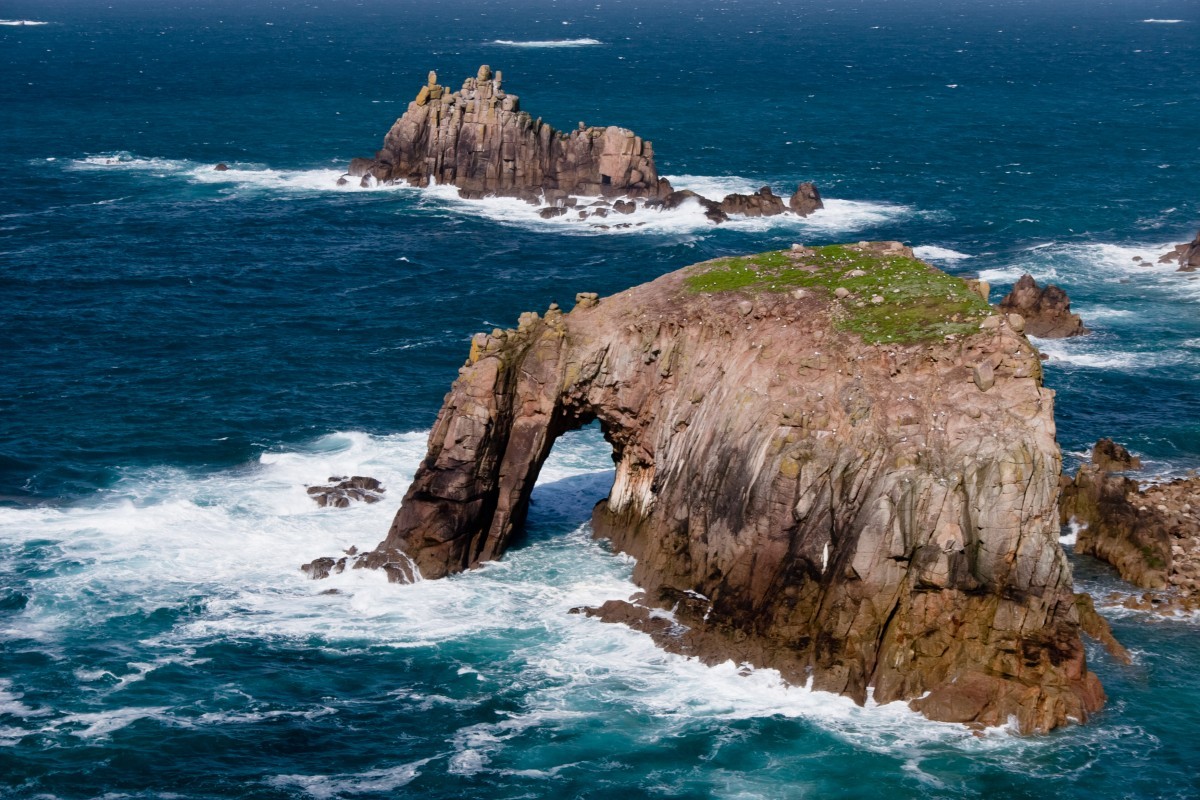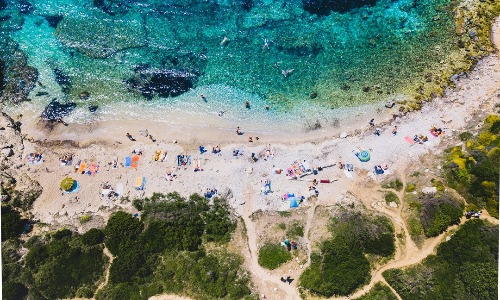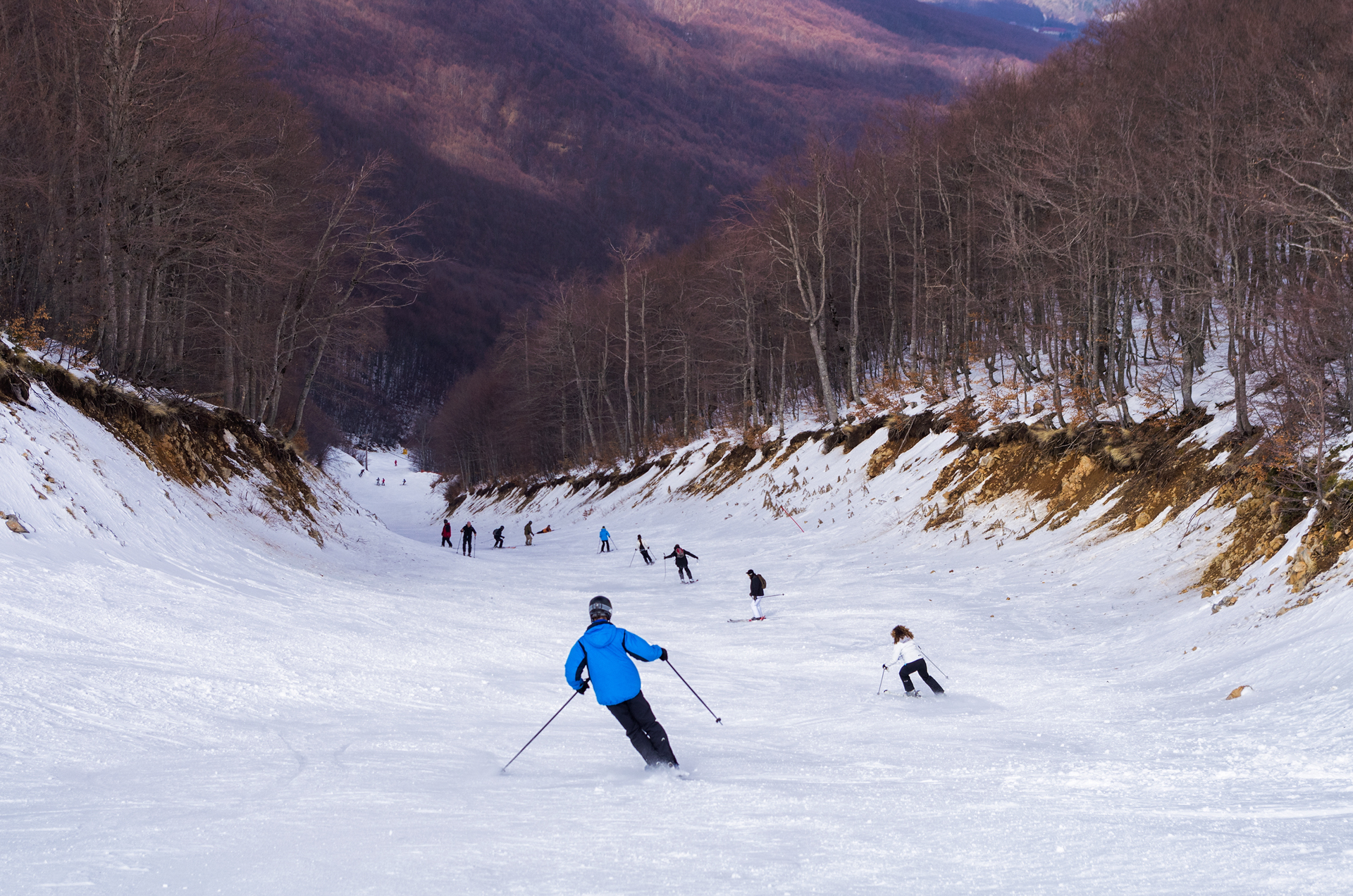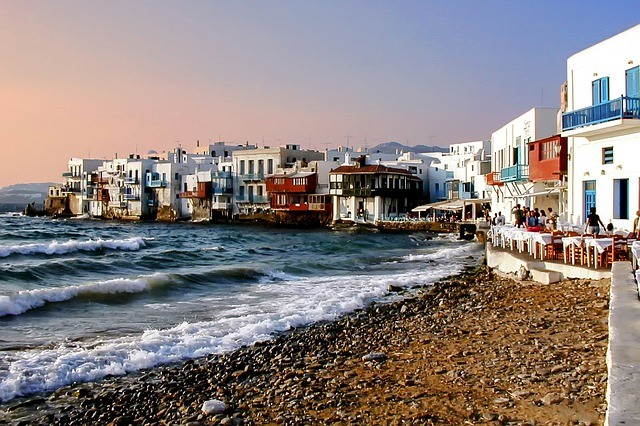| Geography Greece lies at the South Eastern tip of Europe . The country shares its borders with Albania , ex-Yugoslavian Republic of Macedonia , and Bulgaria to the north, and to the east with Turkey . Mainland Greece with its 1400 islands, of which, 169 are occupied, covers an area of about 131,944 square kilometres, and its territorial waters cover a area of 400,000 square kilometres.The coastline has a length of about 15,000 km. The Greek islands are divided into six groups, the Dodecanese , Cyclades , Ionian, Sporades the northeastern Aegean islands and the Saronic Gulf islands. The islands of Crete and Evia are the two largest islands that do not belong to any group. Greece is mainly mountainous with the Pindos mountain range dividing the country, Mount Olympus (2917m) is the highest mountain in Greece , and reputed to be the home of the Greek Gods.In between the mountains and along the coast are fertile plains where a variety of agricultural produce is cultivated. Greece is rich in minerals such as bauxite, manganese and oil. The rivers of Greece , have their source in the Pindos mountain range in the Epiros region, the longest rive in Greece is the Aliakmon (297km).The largest city and capital is Athens , with a population of over 3m. The second largest city, Thessaloniki , capital of Macedonia , with a population of nearly 1m, is an important seaport functioning as the gateway to the Balkans and a major economic and cultural centre for the whole of northern Greece . Greece is in an area prone to earthquakes, luckily, there have been few major catastrophes in the area, the last major earthquake to cause the loss of life and extensive damage in Athens was in 1999 |
Climate in Greece
The climate in Greece varies; in the north, it can be very cold in the winter with heavy snowfalls and hot humid summers. To the south of mainland Greece and on the islands, the weather is more stable with warm summers and milder winters. The temperature in July and August can exceed 40 degrees Celsius, also in the summer months many of the islands and the mainland experience the summer winds known as the “meltemi”, these winds reduce the humidity, but can cause disruptions with the ferry timetables.

